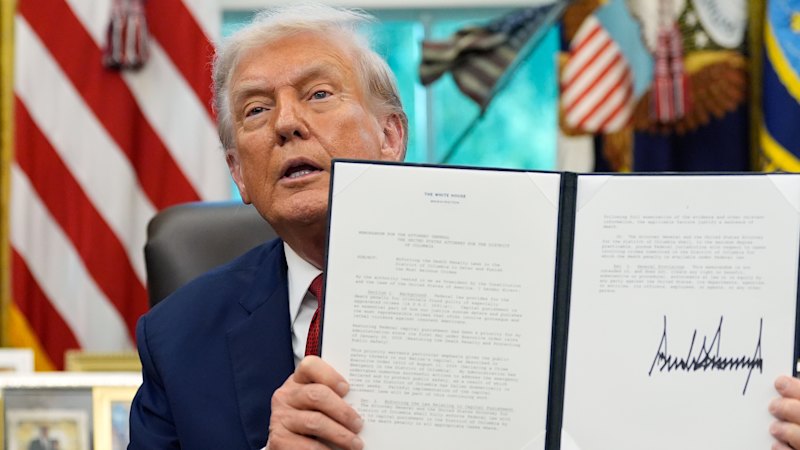
Public sentiment in the United States is shifting as many citizens express a growing weariness towards the actions of former President Donald Trump. In a recent commentary, journalist Jacqueline Maley highlighted a troubling trend: the public is no longer shocked by Trump’s controversial behavior. This observation echoes a wider frustration about the acceptance of what many view as unacceptable conduct in political leadership.
Maley’s reflection suggests that Trump’s persona, once striking for its audacity, has now become normalized. Some citizens appear to have embraced his style, viewing him as a savior figure despite his often abrasive manner. Critics argue that this acceptance indicates a troubling willingness to overlook ethical concerns in favor of personal gain. As one reader from Mascot pondered, the question remains: when will America confront what they perceive as a “narcissistic dictator” and take steps to remove him from office?
Concerns Over Education and Tutoring
The dialogue surrounding education continues to evolve, particularly regarding the role of private tutoring. A letter writer raised concerns about how external tutoring can impact students and teachers alike. Complaints about teachers being overburdened with large class sizes and administrative duties have led many families to seek additional educational support outside the school system.
One perspective suggests that parents should have the autonomy to decide on the levels of stress their children can handle, rather than allowing bureaucratic regulations to dictate educational choices. Critics of the current system argue that the competitive nature of private tutoring fosters unnecessary anxiety and social isolation among students. An alternative is proposed: a more integrated public school system that allows gifted students to pursue advanced studies without the pressure of excessive testing.
Climate Change and Political Accountability
The conversation around climate change is another area of significant public interest, with recent comments from Matt Kean, Chair of the Climate Change Authority, underscoring the urgency of the issue. Kean emphasized the economic benefits of transitioning to renewable energy sources, a stance that contrasts sharply with some members of the political landscape who continue to deny the reality of climate change.
Mining magnate Andrew Forrest has also publicly criticized Trump’s climate change denial, calling it “bulldust.” As the Labor government grapples with its climate goals, it faces scrutiny from various fronts about its effectiveness in addressing rising energy costs and environmental obligations.
Public Sentiment on Governance and Social Media
Public discourse has also turned to the prime minister’s proposal to ban social media access for individuals under 16 years old. This suggestion has sparked debate about the root causes of mental health issues among young people. Various theories have been proposed, ranging from climate change to social isolation, but one reader argues that the decline in faith in traditional institutions may play a significant role in the struggles faced by today’s youth.
In an increasingly complex world, some advocate for a focus on spirituality as a potential pathway to address the disillusionment felt by many young people.
Environmental Concerns and Urban Development
Environmental issues are not just limited to climate change; they also encompass urban development and the preservation of nature. A recent discussion highlighted the City of Sydney’s significant tree register, which includes 2,450 trees, and reflects on past decisions that resulted in the loss of vital green spaces, including 760 trees removed during the construction of a light rail project in 2016.
This decision, made under former leaders Gladys Berejiklian and Andrew Constance, has left a lasting impact on the community, with critics lamenting the irreversible loss of mature trees and their contribution to local ecosystems.
As public conversations continue to evolve around these pressing issues, it remains evident that citizens are seeking accountability and meaningful action from their leaders, not only in politics but across all sectors of society.






